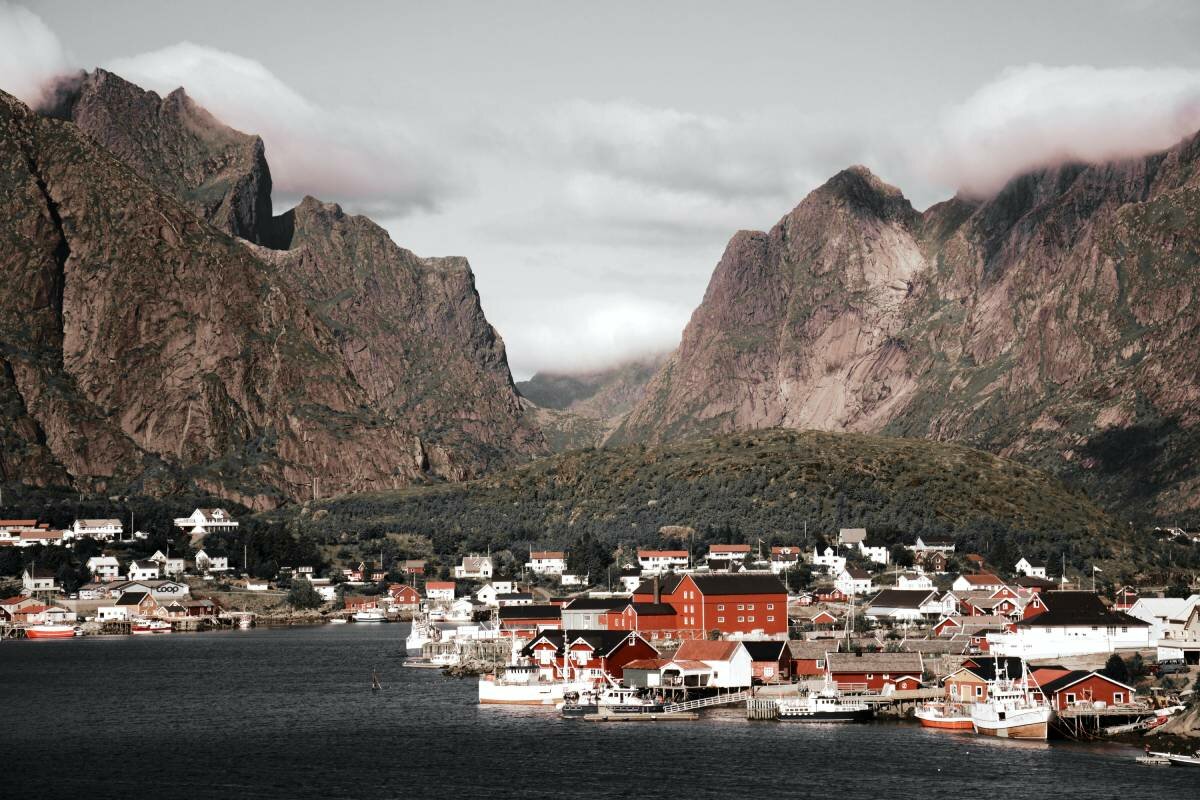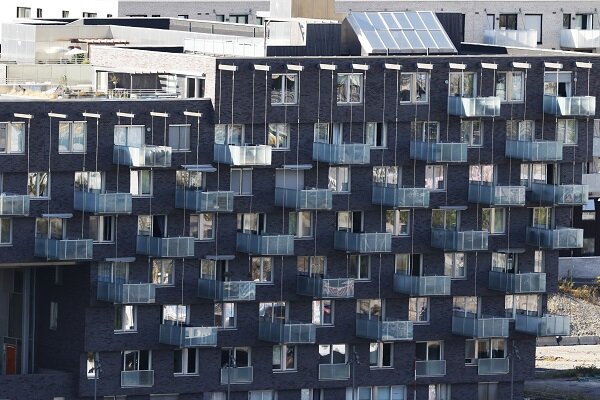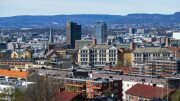Norway has one of the highest home ownership rates in the world. Yet for many, it is full of complications and confusion. Whether you want to buy, sell or rent, we have all the information you need to know about Norway’s housing market.
Home ownership in Norway on the decline
Norway is a nation of home owners. Some 76.4% of Norwegians own their own dwelling whether this is a spacious triple storied house or a small room apartment in a residential building and everything in between. The trend for home ownership, however, has been decreasing over the past few years. From 2003 to 2019, home ownership rates averaged 83.31% with an all-time high of 86.10% in 2008. Yet the economic uncertainty of the past few years (from a drop in the world oil price to the COVID-19 pandemic both causing trouble for the Norwegian economy) has caused this rate to decrease.
Renting vs. owning
For those wanting to enter the Norwegian housing market, one must really look at what they want. It’s all about taking either a short-term or long-term view. To put it simply, each method has its own positives and negatives with renting better short term whilst owning a home will leave you better financially off in the long run.
Home ownership means dealing with a bank to get a large sum of money as a home loan. This mortgage means being indebted, for decades, to a bank and chewing up a fair chunk of your personal income/household budget. However, the light at the end of the tunnel is home ownership. You will own the home and, in the long run, be better off financially as your home is an asset that can be sold for a profit (hopefully) or generationally passed down as a form of inheritance.
Renting, conversely, is all about short-term ease. A rental contract is often easier to get into, and thus out of, and runs for only a few years compared to a few decades for a home loan. Rental properties require a fair less amount of capital than a bank requires to apply for a mortgage. Yet, ultimately, you are not the owner. You do have a certain amount of rights but are paying someone for the privilege of living in accommodation that they bought, not you.

The countryside or big city life
After deciding whether you want to rent or buy, the next question should be: where do you want to live? According to Statistics Norway (SSB) the price index for existing dwellings, nationwide, has risen by 10.6% from last September until this September. Given that there was a huge amount of uncertainty due to the COVID-19 pandemic during this time, it just goes to show why home ownership is seen as a great and safe form of investment.
During this same period, all the big cities saw a significant rise in prices – Trondheim saw an 11.9% rise, Oslo a 10.8%, Stavanger a 9.5%, and Bergen “only” saw its prices rise by 8%. Far in the cold Arctic, Nord-Norge saw the lowest price growth with only a 7.0% increase during this period.
Figures collated by Eiendom Norge have shown that the average price for a residential property, throughout Norway, was just over NOK 4.240 million. Prices and rents, outside the larger cities, are generally lower due to fewer job opportunities and governmental services. Should you want somewhere cheaper to live in then the countryside isn’t just good for your lungs but also your wallet too.
Some key things to remember when you buy
Since the passing of a law in 2011, Norwegian banks are only allowed to lend you 80% of the value of any real estate property. As the average price for a dwelling is NOK 4.2 million this means most home buyers would need NOK 840.000 (almost a million kroner!) in the bank before even talking to the bank about a home loan. When buying, it is worth being practical. Securing a mortgage is a big responsibility and you have legal and financial obligations expected of you as the signee.
It is worth going to a variety of banks (not just DNB or Nordea) to see what interest rates they offer, how much you could receive as a loan, and what all the conditions are. What type of property you are interested in (home or an apartment?) and the location (in a city or in the countryside?) will ultimately affect the price. Living a little further out of a town or in a less affluent or chic suburb are some small ways to bring that price down.
A boligsrapport should always be obtained. This is a special type of report which contains all the technicals aspects of the property. Bid offers in Norway are a legal obligation and there can be huge financial penalties for bidding on a place you cannot afford/do not have a budget for.

A great broker is the key to a quick resale
Finding a great real estate broker is the key to a successful sale of a property. Their job is to facilitate the sale of the property in the quickest and most profitable, for you, way. Selling a house is a relatively quick and easy process in Norway and the average time for a house sale is only 35 days. After meeting you at the property you would like to sell, the real estate broker will do their own financial evaluation and give you an assessment of the resale price.
Before listing though, an energimerking form should be filled out online. This not only highlights the energy efficiency of the property but also if there are any structural problems or issues. All costs associated with the sale of the house are only paid when the transaction has been completed.
Careful consideration for any decision
Much has been made about a national housing bubble in Norway. With house prices seemingly in a never-ending increase, many people have bought a house and thought to sell it on quickly for a profit. Yet this is a highly risky strategy. Buying a property – whether a house, hytte, or apartment – is a decision to be made after careful financial planning and advice.
Norway does possess a rather expensive housing market but there is no chance of a housing bubble appearing in the near future. The effects of the COVID-19 pandemic have seen many people leave big cities – with Oslo actually experiencing population decline last year. This has eased the demand-side pressure on all forms of dwelling. From a supply-side, cheap and affordable housing was a key election issue discussed by all sides of politics during this year’s election.
Buying, renting, or selling a property in Norway can be a daunting experience. With a little planning, time and foresight, the process can be a lot easier than first assumed.
The opinions expressed are those of the author and are not held by Norway Today unless specifically stated.
About the author:
Jonathan is a lover of the written word. He believes the best way to combat this polarization of news and politics, in our time, is by having a balanced view. Both sides of the story are equally important. He also enjoys traveling and live music.
Source : NTB Scanpix / #Norway Today / #NorwayTodayFinance
Do you have a news tip for Norway Today? We want to hear it. Get in touch at info@norwaytoday.no




Be the first to comment on "All you need to know about Norway’s housing market"